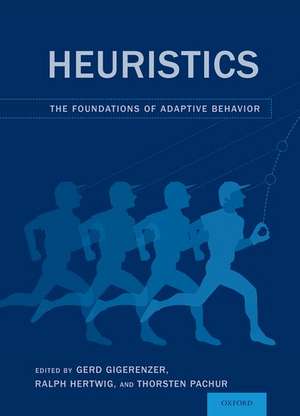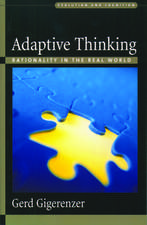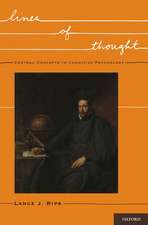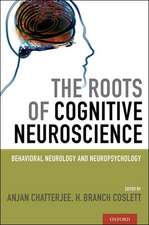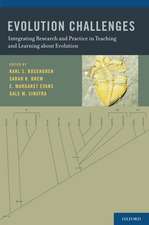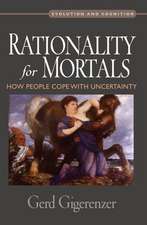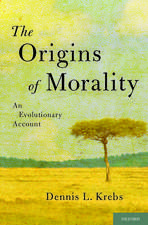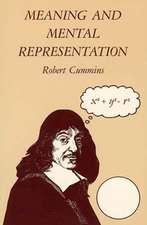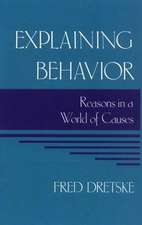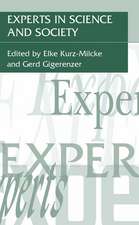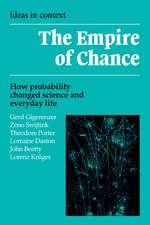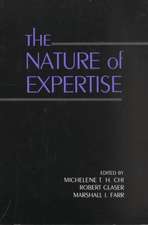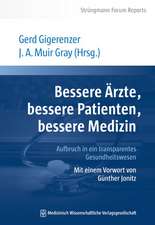Heuristics: The Foundations of Adaptive Behavior
Autor Gerd Gigerenzer, Ralph Hertwig, Thorsten Pachuren Limba Engleză Paperback – 14 ian 2016
| Toate formatele și edițiile | Preț | Express |
|---|---|---|
| Paperback (1) | 444.73 lei 31-37 zile | |
| Oxford University Press – 14 ian 2016 | 444.73 lei 31-37 zile | |
| Hardback (1) | 926.11 lei 31-37 zile | |
| Oxford University Press – 26 mai 2011 | 926.11 lei 31-37 zile |
Preț: 444.73 lei
Preț vechi: 538.68 lei
-17% Nou
Puncte Express: 667
Preț estimativ în valută:
85.11€ • 88.32$ • 71.14£
85.11€ • 88.32$ • 71.14£
Carte tipărită la comandă
Livrare economică 04-10 martie
Preluare comenzi: 021 569.72.76
Specificații
ISBN-13: 9780190494629
ISBN-10: 019049462X
Pagini: 880
Dimensiuni: 178 x 251 x 48 mm
Greutate: 1.54 kg
Editura: Oxford University Press
Colecția OUP USA
Locul publicării:New York, United States
ISBN-10: 019049462X
Pagini: 880
Dimensiuni: 178 x 251 x 48 mm
Greutate: 1.54 kg
Editura: Oxford University Press
Colecția OUP USA
Locul publicării:New York, United States
Recenzii
This volume makes a powerful case for the importance of fast and frugal heuristics in explaining a wide range of aspects of cognition. It brings together the latest developments in one of the most influential research programmes in the decision sciences, and will provide a valuable stimulus for, and a challenge to, research across the field." Nick Chater, University College London
The Gigerenzer, Hertwig, and Pachur volume is a collection of 40 previously published articles, some of which have been modified to suit the occasion. There are also very helpful introductions to each article. The articles illustrate the variety of ways in which people use heuristics, or rules of thumb, to quickly make decisions.
Over the last two decades, Gerd Gigerenzer and his colleagues have pioneered a fundamentally new approach to human decision-making. This research framework-the simple heuristics program-recasts classic questions in ways that open up vital new avenues of research and understanding. This fascinating and authoritative volume brings together for the first time a comprehensive set of articles that explore the theoretical foundations of this revolutionary approach, as well as tests of its psychological reality and practical importance in everyday decision-making
The Gigerenzer, Hertwig, and Pachur volume is a collection of 40 previously published articles, some of which have been modified to suit the occasion. There are also very helpful introductions to each article. The articles illustrate the variety of ways in which people use heuristics, or rules of thumb, to quickly make decisions.
Over the last two decades, Gerd Gigerenzer and his colleagues have pioneered a fundamentally new approach to human decision-making. This research framework-the simple heuristics program-recasts classic questions in ways that open up vital new avenues of research and understanding. This fascinating and authoritative volume brings together for the first time a comprehensive set of articles that explore the theoretical foundations of this revolutionary approach, as well as tests of its psychological reality and practical importance in everyday decision-making
Notă biografică
Gerd Gigerenzer is Director of the Center for Adaptive Behavior and Cognition at the Max Planck Institute for Human Development in Berlin, and former Professor of Psychology at the University of Chicago. He won the AAAS Prize for the best article in the behavioral sciences and the Association of American Publishers Prize for the best book in the social and behavioral sciences. His recent books include Rationality for Mortals, Gut Feelings, and Risk Savvy .Ralph Hertwig is Director of the Center for Adaptive Rationality at the Max Planck Institute for Human Development in Berlin. His research investigates how individuals and groups juggle the simultaneous demands of uncertainty, data scarcity, and limits in cognitive resources when making decisions. He was previously Chair of Cognitive and Decision Sciences and Dean of the Faculty of Psychology at the University of Basel, and he is a recipient of the Heinz Heckhausen Young Scientist Prize.
